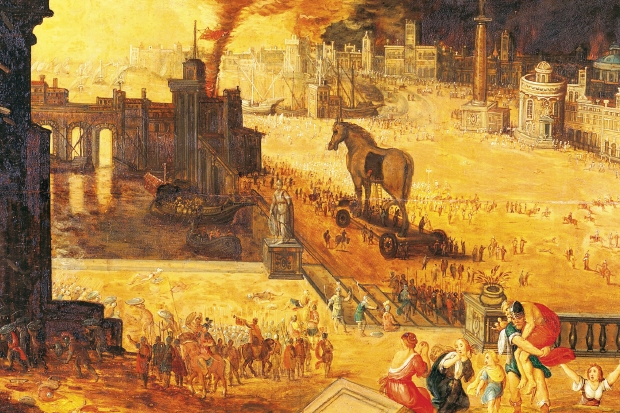The Iliad begins with a grudge and ends with a funeral. In between are passages, if not necessarily of boredom, to alter the war adage, of lists, pathos, sex, humour, fairytale strangeness (golden fembots, a talking horse) and lyric images, punctuated by moments of pure terror (eyes popped out of heads, a spear throbbing in a beating heart, a man cradling his intestines in his hands). With several new translations in the past year alone, as well as a film in 2004, and recent novels (David Malouf’s Ransom), dramatisations, and book-length poems (War Music by Christopher Logue and Memorial by Alice Oswald), we are clearly, in our era of seemingly perpetual war, in an age of Iliads.
One of those recent books was Caroline Alexander’s The War that Killed Achilles: The True Story of Homer’s Iliad and the Fall of Troy (2009), a close reading-cum-
retelling. Her argument is that the poem is deeply anti-war: Achilles considers the expedition against Troy pointless — he has nothing against the Trojans, and is openly at odds with the army’s literally bloody-minded commander, Agamemnon.

Get Britain's best politics newsletters
Register to get The Spectator's insight and opinion straight to your inbox. You can then read two free articles each week.
Already a subscriber? Log in







Comments
Join the debate for just $5 for 3 months
Be part of the conversation with other Spectator readers by getting your first three months for $5.
UNLOCK ACCESS Just $5 for 3 monthsAlready a subscriber? Log in